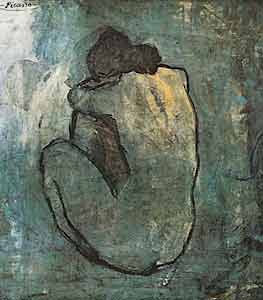
Our community is hosting a School for Conversion this weekend. As part of the New Monasticism conversation, one thing we've been considering is what the tradition of monasticism might have to say to religious and spiritual life today. One of our sessions had the following thoughts, which I found very compelling. I need to chew on them a bit more, but here they are.
"By putting on a habit, by making vows, the religious is making a pledge of allegiance. By making a commitment to poverty or simplicity, I am by definition standing against the god of materialism. By making a commitment to chastity or monogamy, I am by definition standing against the god of sexual gratification. By making a commitment to obedience or humility, I am by definition making a stand against the god of power. By making a commitment to an ongoing conversion of life or to stability, I am by definition making a stand against the unexamined, ephemeral self of contemporary culture. Religious life, by its very nature, is an expression of resistance to some of the most pernicious values, ideologies, and structures of culture."
Obviously, the kind of monasticism practiced throughout the centuries is not what most of us would choose today, especially folks with families. But the core principles behind the movement can, I think, be translated into virtually every setting and situation.
Through the next few weeks, I'm going to be doing a series of posts about these commitments. I'm really hoping for lots of conversation from all of you. Feel free to post anonymously if you'd prefer, but please share what you think and how you feel.




5 comments:
looking forward to the conversation...
I'd love to have a conversation about this stuff in real life, over coffee or some such.
There's so much I would want to say, coming from a Faith tradition that has a very strong connection to and dependence upon its monastic component. The constant dynamic interaction between the parish, the home and the monastery ultimately builds up the whole Church, and informs the lay life with a level of asceticism, or at least a call to asceticism, that I can only describe as challenging and profoundly meaningful as a means to the end, which is of course, Life in Christ.
At some point, although lines do not really ever get blurred even when a home might be compared to a "little monastery" or a mother of children be likened to an "Abess in her home", piety leads to simplicity, fervency and regularity of prayer, fasting, repentance, a lifestyle of almsgiving, etc. The type of home environment in which this is all normal may produce young men and women who indeed choose to become monastics. Or where old men or women choose to become monastics after their marriages are ended by widowhood or mutual consent. Monks and nuns do not, after all, spring from the ground like mushrooms after a spring rain. (Not that God isn't prefectly capable of getting hold of someone mired in sin and setting that person radically on the path of repentance. That happens, too.)
I guess my point is, that what I read, when I read about New Monasticism, is a description of a striving for what I would consider a life akin to a pious lay-person's life in the Orthodox Church. I cannot call it monasticism, however, because it is not that and I wouldn't want to detract from the very real work very real monks and nuns are doing in this very real 21st century here in America and elsewhere.
Interesting stuff you think about Maria. You live in a very different place in your head from me, but in our hearts i think we are in close proximity.
I dont really know much about the monastic traditions....honestly Ive always wondered what compels a person to such a place in their life. And i dont claim to understand the "new monasticism"...but im sure the conversation will be interesting.
-joy (cant remember my password)
Maria...I really enjoyed this post since I missed that session this weekend...it is a good reminder of the need to be purposeful and thoughtful in our actions and the way in which principle and action are meant to fit together in one whole instead of being split apart as they often are...as much as anything else I think that this is why this discussion is important, because it revolves around faith as a way of life that is shared by a group of people (reminds me of Macintyre's idea of the need to restore a "telos" in western society, which we know was a seminal thought in the beginning of the "new monastic" discussion)....that is one of the reasons why monasticism is one good parallel...but only one, and there is need for conversation and input from the various traditions and more contemporary movements...thanks.....
I'm looking forward to it as well. I'm probably not disciplined enough to do anything much (still rebelling against that fundamentalist brainwashing I got as a youth), but I always think about faith issues and spirituality. I love to explore different perspectives.
Post a Comment